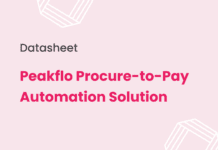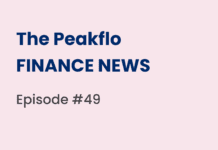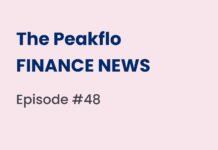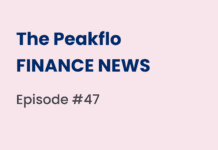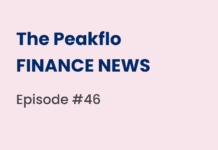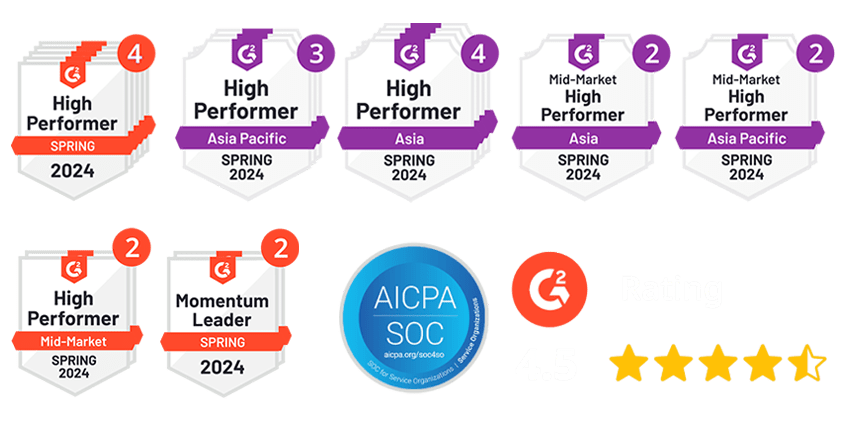Financial risk refers to the potential of facing losses or adverse outcomes due to various factors and events within the financial spectrum.
However, with the right strategies to mitigate these risks, you can prevent high-risk financial incidents from happening.
In this article, we’ll unravel the concept of financial risk, its various forms, and best practices to secure your financial operations.
What Is a Financial Risk?
Financial risk is the probability of financial losses or negative implications stemming from uncertainties in financial markets, investments, or financial decisions. Recognizing, evaluating, and managing these risks is vital for maintaining your financial health.
Types of Financial Risk
General Financial Risk
- Systematic Risk: Systematic risk pertains to the risk impacting the entire financial system or market. This type of risk is unavoidable, even with a diversified investment portfolio.
Systematic risks typically originate from external events or factors like economic downturns, financial crises, or political unrest. These events can set off a chain reaction, leading to widespread disruptions and losses across the financial system. - Non-systematic Risk: Non-systematic risk, also known as unsystematic or idiosyncratic risk, is confined to a specific investment, company, or industry. This risk can be minimized or eliminated by diversifying an investment portfolio appropriately.
Non-systematic risks result from factors unique to a particular investment like company management, product demand, or competitive environment.
Time Period Financial Risk
- Short-Term Financial Risk: Short-term financial risks encompass uncertainties that can affect one’s immediate financial obligations, such as liquidity concerns, sudden expenses, or income disruptions.
- Long-Term Financial Risk: Long-term financial risks involve risks that have the potential to impact one’s financial stability over an extended period. These risks include inflation, longevity risk, and inadequate retirement planning.
Impact-Based Financial Risk
- Pure Risk vs Speculative Risk
Pure risks refer to circumstances where only loss or no change can occur. These include events like natural disasters or accidents. Unlike speculative risks, which offer prospects of gain or loss, pure risks do not present any potential for gain. - Specific Risk vs Fundamental Risk
Specific risks pertain to risks that are unique to a particular investment or asset, such as the risk of a company going bankrupt. Fundamental risks are inherent to the entire market or industry, such as regulatory changes impacting an entire sector. - Static Risk vs Dynamic Risk
Static risks refer to risks that remain constant over time, such as the risk of theft or property damage. Dynamic risks are those that change and evolve, such as market volatility or technological advancements.
Best Practices to Keep Your Financial Management Secure
To control financial risks and ensure a secure financial future, consider implementing the following best practices:
- Establish a Risk Management Plan: This should identify potential risks, their likelihood, their potential impact, and strategies to mitigate them. Regularly review and update this plan to reflect changes in the business environment.
- Maintain a Healthy Cash Flow: Keep track of income and expenses to ensure you always have enough cash to cover operational costs. Use forecasting tools to predict future cash flow and plan accordingly.
- Diversify Revenue Streams: Don’t rely on a single client or product for the majority of your revenue. Diversification can reduce the risk of a financial crisis if one revenue stream dries up.
- Implement Strong Financial Controls: Regular audits, separation of duties, and stringent approval processes can help prevent errors, fraud, and mismanagement that can lead to financial losses.
- Prioritize Debt Management: Keep debt at manageable levels. High interest rates can strain your finances. Make a plan for timely repayments and consider refinancing if necessary.
- Protect Against Currency Risk: If you do business internationally, currency fluctuations can impact your bottom line. Use hedging strategies to mitigate this risk.
- Purchase Adequate Insurance: Insurance can protect against various financial risks, from lawsuits to natural disasters. Ensure you have the right types and levels of coverage.
- Train Employees: Make sure your team understands the financial risks involved in their work and how to mitigate them. This includes everything from the sales team understanding the risk of extending too much credit to clients, to the purchasing team recognizing the risk of not having diversified suppliers.
- Stay Informed: Keep up with industry trends, changes in regulations, and the overall economic climate. The more aware you are of the business environment, the better you can anticipate and prepare for potential financial risks.
Do Not Let Financial Risks Get in the Way of Your Business, Take Control Now
Financial risk is a reality for all businesses, but it doesn’t have to spell doom for your company. By recognizing the types of financial risk, establishing a solid risk management plan, and implementing best practices, you can exert control over these risks and create a more secure financial future for your business.
In the world of finance, where collaboration and transparency are key, Peakflo stands as a trusted partner. As a safe financing platform, Peakflo offers a seamless environment for teams to work together on accounts payable and receivable tasks. It’s designed to foster communication, minimize errors, and streamline your financial processes.
The immutable audit trail feature ensures every change to a document is meticulously recorded, providing a detailed history and adding a layer of accountability that is vital in financial management. Furthermore, Peakflo is committed to the highest standards of security, ensuring your data’s safety and confidentiality.
Don’t let financial risks control your business. Take the driver’s seat with robust risk management practices and reliable platforms like Peakflo. Ready to transform your team’s approach to financial tasks? Join Peakflo today and lead your business to a secure and prosperous future.









![Why AI Sales Calls Are Making Good Sales Reps Even Better [2025 Guide] ai sales calls](https://cdn-kmjmp.nitrocdn.com/YvtqmrsiHUxqerlSiZgbfzqqTARWTElr/assets/images/optimized/rev-834053b/blog.peakflo.co/wp-content/uploads/2025/09/65168cf6-3001-4733-8cbc-12d5684cf449-218x150.webp)
















